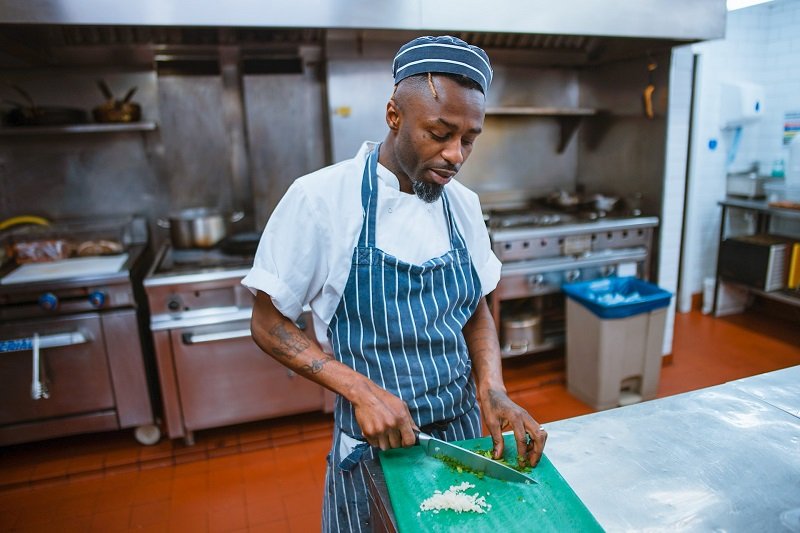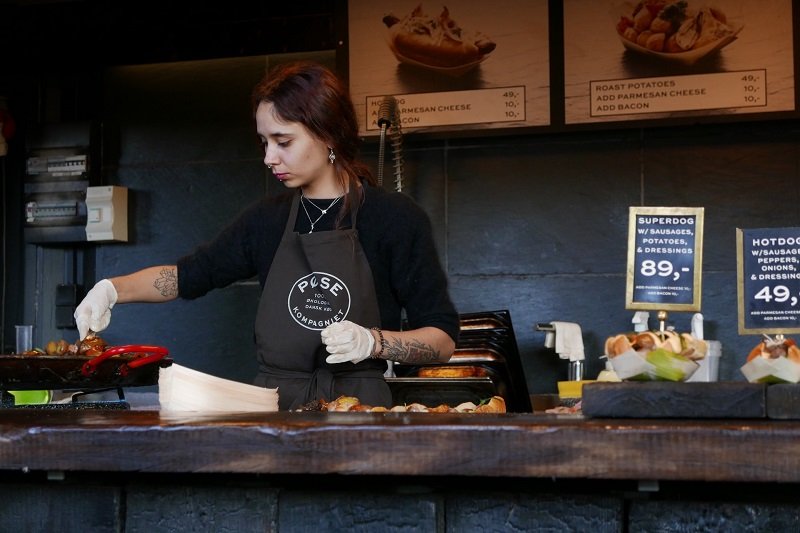As the tantalizing aroma of your sumptuous spaghetti Bolognese fills the kitchen, you find yourself fully absorbed by the joy of culinary creation. The ingredients, the intense concentration, the heat, the clatter – it’s a delightful symphony that demands full participation from you. But, have you ever stopped to consider the value of your seemingly inconspicuous companion, the chef’s apron? Sure, it helps keep your clothes safe from spills and splatters but is there more to this humble garment?
That is right, my dear reader. Our focus for today is ‘Unveiling the Health and Safety Benefits of Wearing Chef Aprons.’ This common piece of fabric can actually make your kitchen experience safer and healthier while reinforcing that ever so stylish chef’s persona. We will be sinking our teeth into the various wh-questions (why, what, when, who, etc.) associated with this topic. Think of this as your guide to understanding the vital role of aprons.
Moving forward, we’ll be deep diving into the crucial aspects of chef’s aprons – their safety implications, the health benefits, and even a sneak peek into their downside. Once you’ve journeyed through this comprehensive guide, you’ll have a newfound respect for this ‘silent culinary hero’ and why it deserves a prominent place in your kitchen ensemble.
Protective Gear In The Kitchen – Why And How?

Let’s start by addressing the ‘why.’ The kitchen can be a precarious battlefront with all the potential hazards – hot oil splatters, sharp knife accidents, and even possible bacterial contamination. It vitalizes the question – how important is a chef’s apron as a protective gear?
Aprons serve as a safety barrier. Traditionally made of sturdy cotton, they protect the wearer from the hazards of the kitchen. Hot liquids and food particles inevitably splatter during cooking. An apron keeps your skin shielded, lowering the risk of burns. It also serves as a safety net against accidental cuts.
Moreover, a chef’s apron isn’t just about defending against physical perils. It also guards you from microbiological threats. Aprons prevent food-borne pathogens, from raw meat or fish for example, from contaminating you, reducing the risk of food-poisoning. This benefit amplifies if aprons are regularly cleaned and correctly used.
The Health Perspective – What’s The Gain?
Aprons hold a prominent place in maintaining cleanliness and hygiene. Deeper than aesthetic appeal, aprons ensure the chef’s physical health too. Bacteria from your body or your clothing can sometimes find their way into the food, leading to potential cross-contamination. Wearing aprons goes a long way in providing a protective barrier.
Moreover, aprons can also be psychological tools. Donning an apron clarifies kitchen responsibilities and can speed up routine processes like cleaning and food preparation. Recognizing these factors, many professional and home chefs regard aprons as a requisite part of their outfit.
Who Needs Aprons?
Whether you’re a professional cook running a Michelin-starred restaurant or a beginner experimenting with a recipe at home, an apron should be at the top of your list. It not only visibly distinguishes the chef but also promotes cleanliness and efficiency.
From children learning to cook to seasoned kitchen veterans, everyone can benefit from wearing an apron. It endorses respect for the food and the cooking process and reinforces a mindful approach to hygiene.
When To Wear Aprons – Dining Experience Efficient.
As a rule of thumb, the moment you step into the kitchen to start prepping is when you should strap on your apron. It’s a badge of preparation that signifies the start of a cooking session, making the dining a more efficient and clean process.
Additionally, aprons are not just limited to cooking. They are also worn while cleaning, serving, and even eating, especially for messy meals, ensuring clothes stay neat and clean.
Pros And Cons – Every Coin Has Two Sides
Like any other subject, the use of aprons has its pros and cons. On the one hand, aprons elevate hygiene, safeguard the chef’s health, and serve as an outfit that distinguishes the cook. On the other hand, some may find aprons restraining or cumbersome. The use of aprons requires discipline – they need to be regularly washed and not used as hand towels, which could counteract the hygiene benefits.
Conclusion – The Emancipated Apron

Serving a much grander purpose than just blocking pasta sauce from ruining your favorite shirt, the humble apron emerges as a protective shield in the kitchen. It not only safeguards your health but also enhances the cooking experience. From being an indicator of meal preparation to a barrier against kitchen hazards, the chef’s apron goes beyond being just a piece of cloth.
Aprons are not just about the individual wearing it; it’s about the safety, health, and well-being of everyone who is going to enjoy the food. So next time you don your chef apron, remember, you’re not just keeping your clothes clean, but you’re actively making an effort to keep yourself and your loved ones safe and healthy.
In its simplicity, the apron embodies the idea that great culinary feats demand respect for wellness and hygiene. After all, the love we pour into our food is best-served served safely and healthily.
So, wear the apron with pride, for you’re not just a cook, but a guardian of health and safety in your kitchen!







